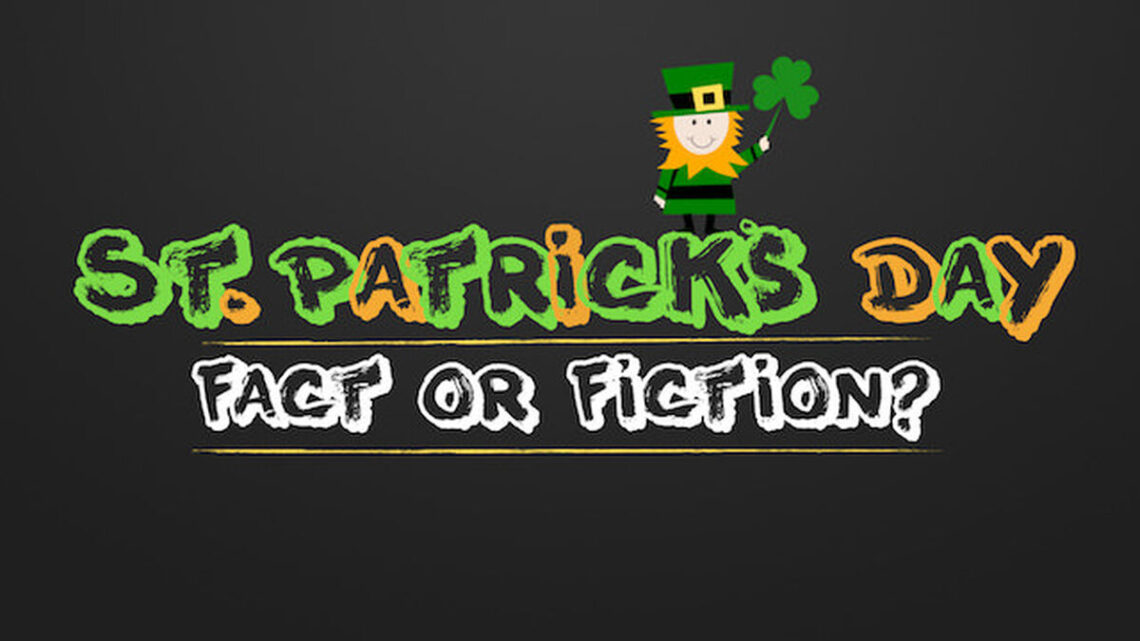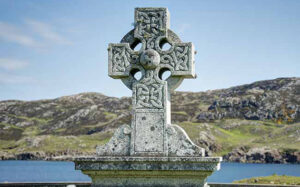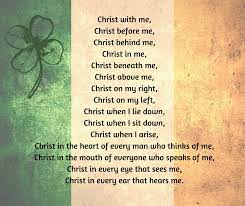
St. Patrick, the Man and the Myths
Facts About His Early Life
Over 1600 years ago a young teenager from northern Britain (possibly Wales) was kidnapped by Irish sea pirates and sold into slavery. His name was Maewyn Succat. He served his master as a shepherd for six years. In The Confessio, one of only two documents he wrote that have survived the centuries, he states he did not really know “the true God”. Captive, unfamiliar with Gaelic, without companionship or comfort, he began to pray. In his early 20s, he had a dream telling him he would soon be returning home. Maewyn made his escape by stowing away on a ship headed back to Britain.
Some years after he reunited with his family he felt called to become a priest and return to Ireland. After living with the Celts he was burdened for these people who lived in darkness, practicing paganism and living in fear of evil spirits. It was not easy for him to return to school to learn Latin and Theology later in life. He studied in France for years before he was ordained a priest and later a bishop. He was given the name Patritius, meaning “Father to his people”.
Myths
Although he is considered the Patron Saint of Ireland, Patrick was not Irish.

He was never canonized by a Pope so he is not a true “Saint” by definition of the Catholic Church.
Patrick did not banish all the snakes from Ireland. It is believed that after the last Ice Age, snakes never returned to the Emerald Isle.
There is no proof that he used the three-leaf shamrock to teach the doctrine of the Trinity to the pagan Irish. No evidence has been found that it was he who combined the pagan and Christian imagery to create the Celtic cross.
St. Patrick wore blue and not green as bishop.
Patrick fully understood his need for God’s protection and that his listeners were facing a difficult spiritual battle. He shared the gospel of faith in Christ Who has the power to give freedom from fear.
Ephesians 1:16–21 (ESV)
I do not cease to give thanks for you, remembering you in my prayers, that the God of our Lord Jesus Christ, the Father of glory, may give you the Spirit of wisdom and of revelation in the knowledge of him, having the eyes of your hearts enlightened, that you may know what is the hope to which he has called you, what are the riches of his glorious inheritance in the saints, and what is the immeasurable greatness of his power toward us who believe, according to the working of his great might that he worked in Christ when he raised him from the dead and seated him at his right hand in the heavenly places, far above all rule and authority and power and dominion, and above every name that is named, not only in this age but also in the one to come.
Facts About His Impact
Around 433 AD he returned to Ireland as the first missionary to “barbarians beyond the reach of Roman law”. Patrick was returning to the very people who had enslaved him to share the good news of the gospel. They did not appreciate his efforts at first and he suffered the threat of martyrdom on more than one occassion. He wrote against slavery and especially the conditions of the women even though the papacy didn’t condemn slavery as immoral until the 19th century. He was a humble man who served the people of Ireland for appoximately thirty years. During that time he baptized many, ordained new priests and oversaw the building of churches and monastaries. He is credited for bringing Christianity and civilization to the land. St. Patrick’s Day is celebrated on the day of his death – March 17th.
A morning prayer called The Lorica or St. Patrick’s Breastplate (author unknown) has been copied into smaller prayers and song. It may be familiar to you. I included a portion below. It is a prayer of praise and petition for strength and protection. The prayer also asks that Christ would be reflected in all he did and said. May we rise each morning with a similar prayer on our hearts and minds.


End of Winter, Signs of Hope

My Master Prays For Me
You May Also Like

Discrimination vs. Inclusion
June 12, 2020
Holding on to Grace
February 8, 2019

2 Comments
Maggie Wallem Rowe
Nancy, I appreciate this post about Patrick – it’s so timely. My late BFF, Cindy McDowell, often blogged about him in the month of March. It’s important to be reminded of his contributions. It’s a pity that “St. Paddy’s Day” celebrations have devolved into parades, excessive drink, and dying rivers green!
Nancy Smith
I agree! He accomplished so much in his lifetime. The parades reflect none of his values either – he would be horrified. I will be going to the Renew retreat in April. It was so palpable last year how much Cindy was missed! I gave Robin Farnsworth your greetings… Of course the crazy ladies of the Fellowship had a great time. :-> Nancy